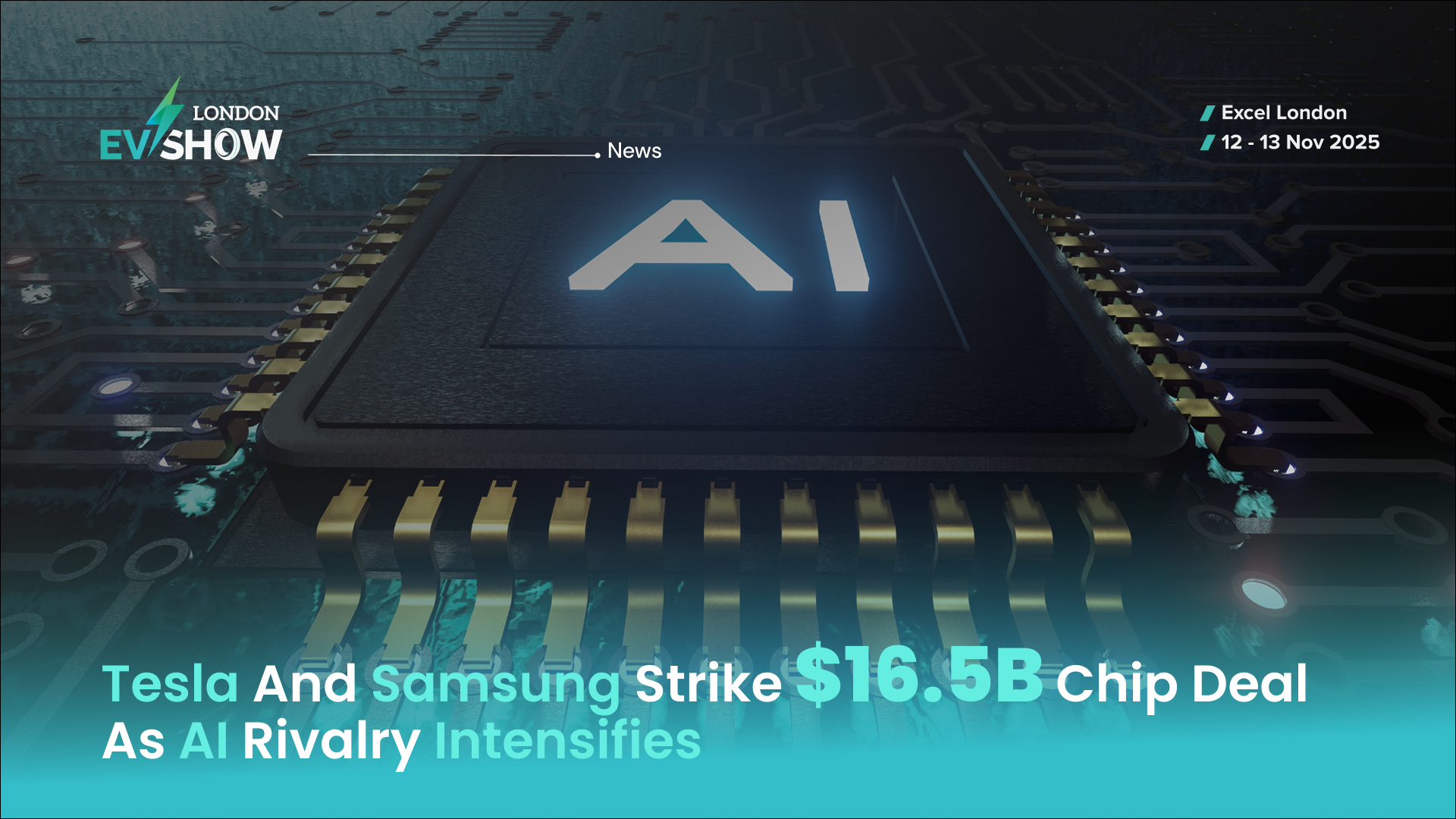United States| July 28, 2025: In a decisive move to future-proof its autonomous ambitions, Tesla has signed a landmark $16.5 billion deal with Samsung Foundry to manufacture its next-generation AI6 chips, a development that could tilt the balance in the global race for AI dominance in mobility, robotics, and real-time automation.
The chips will be produced at Samsung’s newest fabrication plant in Taylor, Texas, just a short drive from Tesla’s Austin Gigafactory. Beyond the numbers, this deal marks a turning point: Tesla is no longer just a customer of chip technology. It’s fast becoming one of its key architects.
While most headlines focus on the dollar value, the real story lies in what these chips are expected to power. Tesla’s AI6 silicon is believed to underpin not just autonomous driving, but also the company’s Optimus robot program, its Dojo supercomputer, and a rapidly evolving in-house AI infrastructure.
Samsung, long known for its memory chips, has struggled to compete in the premium logic foundry space, which is dominated by TSMC. This Tesla contract gives Samsung more than just a commercial boost. It marks a strategic reinvention for Samsung in the AI era, with the once-cautious Taylor plant now emerging as the cornerstone of the company’s foundry resurgence in the West.
In choosing Samsung, Tesla opted for geographic and geopolitical proximity, not just performance. With tensions rising over semiconductor supply chains in East Asia, a domestic production base was important from a business point of view for a more global reach.
Tesla’s new deal could also spark a redefinition of how automotive companies manage chips. Instead of competing with tech giants like Apple and Nvidia for foundry capacity, Tesla is now taking control of its chip production pipeline. Sources close to the company say that Musk negotiated hands-on oversight of production timelines, quality, and throughput, making this deal not just a procurement but a co-engineering agreement.
With Tesla’s chip volumes projected to surge, the company is doubling down on vertical integration not just in vehicle production, but in securing high-performance compute at scale. This has led to a strategic partnership with Samsung Foundry, which will manufacture Tesla’s next-generation AI6 chips at its U.S.-based facility.
By shifting advanced AI chip development to Samsung, Tesla is pursuing a long-term innovation track rooted in domestic production, while reportedly accelerating its silicon roadmap to leap from AI4 to AI6 within just three hardware generations, an aggressive move that highlights Tesla’s ambition to lead the future of AI hardware.
The Tesla–Samsung deal is not merely a high-dollar contract; it’s a declaration of intent. Tesla aims to be not only the EV leader, but the company that owns the entire intelligence stack from edge sensors to data centers. With Samsung’s foundry now in the loop, the global chip hierarchy could be in for a shake-up. As both companies race to meet rising AI demands, the roads and robots of tomorrow may well be powered by chips born in Texas and forged through one of the most ambitious hardware partnerships in recent memory.

